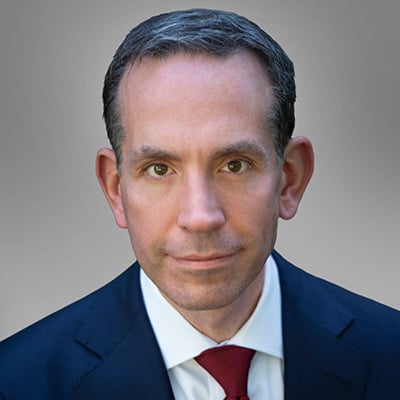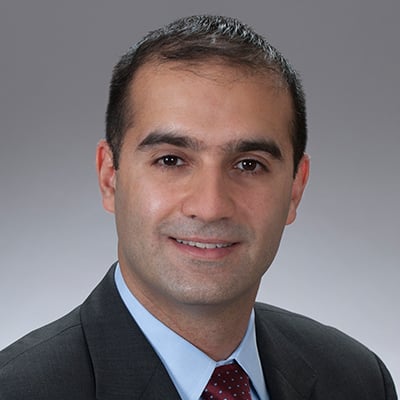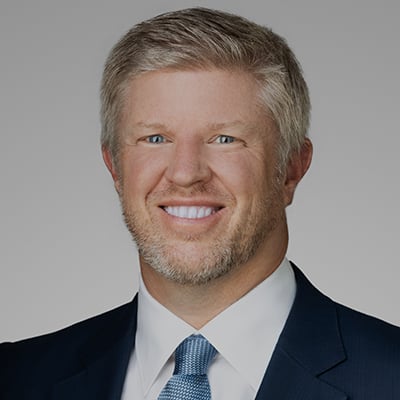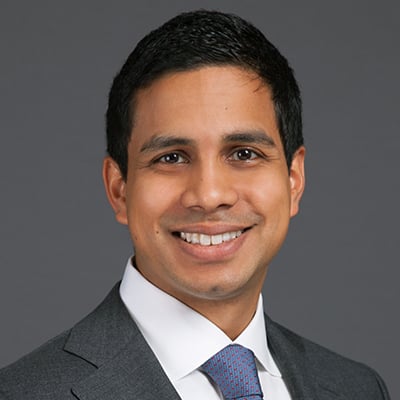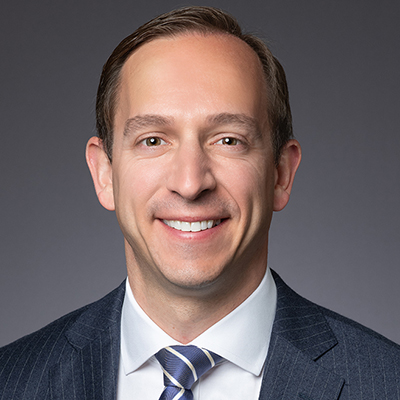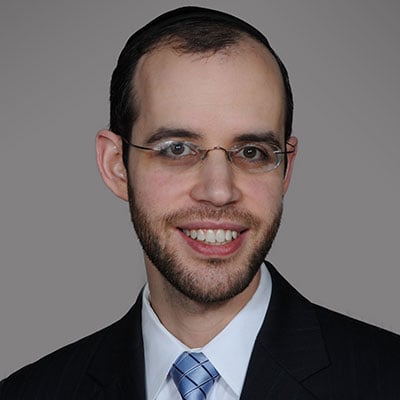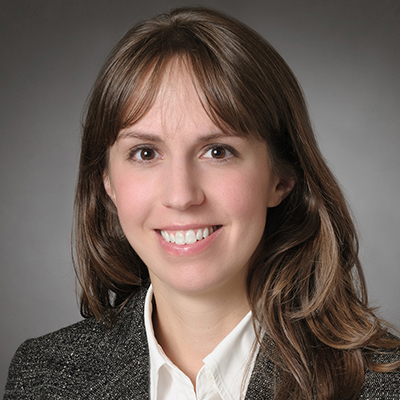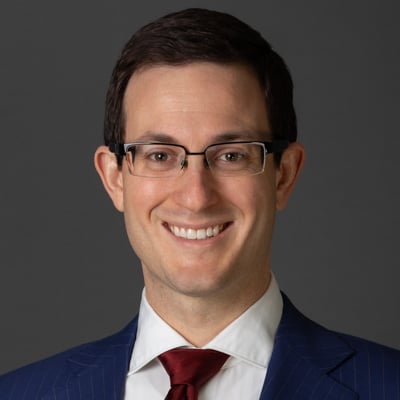Kirkland Turns 'Logistics Nightmare' Into $764M Motorola Win
To prove that Chinese two-way radio maker Hytera's products were based on technology stolen from Motorola, a Kirkland & Ellis LLP team took millions of lines of source code and a deluge of documents written in Mandarin and made them crystal clear for an Illinois federal jury.
By translating all that technical information into a compelling tale about corporate responsibility — or lack thereof — the firm secured a $764 million verdict for Motorola that might be accompanied by a worldwide ban on Hytera's products.
Kirkland partner Adam Alper said that after the jury heard months of evidence, the Motorola team sought to put Hytera's credibility on trial.
"More important is raising what is the right thing here, what is right for the jury to do here, what should Hytera have done in this situation," he said. "And I feel like we very consistently and clearly communicated those messages."
Motorola Solutions LLC had alleged that Hytera Corp. built its competing digital two-way radio using the source code plus thousands of confidential technical documents brought over by a group of engineers Hytera had hired away from the Chicago-based telecommunications heavyweight.
After 3½ months of trial, the jury needed only 2½ hours to make up their mind, siding completely with Motorola on Feb. 13. The jury awarded the company the exact amount of damages Alper had requested during his closing argument a day earlier.
Hytera did not respond to requests for comment on the trial, but it released a statement after the verdict was reached saying it disagreed with the jury's decision and intends to appeal.
According to Kirkland partner Brandon Brown, Hytera's use of the admittedly stolen trade secrets was "very, very clear." During expert witness testimony, the jury saw hundreds of thousands of lines of Motorola's source code that were directly copied into Hytera's code, as well as Motorola technical documents copied into Hytera's own documentation.
Brown said Kirkland demonstrated to the jury that the copying was intentional by showing Hytera executives' internal communications saying they needed to use the Motorola code but would have to rewrite it to avoid being sued.
Hytera had argued at trial that Motorola waited too long to bring its suit, and that the theft of the documents was the work of a few bad apples and wasn't necessary for Hytera to complete its radio.
Alper's co-lead counsel, Mike De Vries, noted that Hytera had changed its story — from denying the stolen secrets were used in its product before trial, to admitting to the jury that some copying had occurred but downplaying its impact.
De Vries said it was crucial to emphasize for the jury that Hytera was changing its story, which isn't something that jurors would have necessarily realized on their own.
"When you're living a case for years like we were here, it's important to think about the fact that the jury doesn't have your perspective on what's happening," he said.
De Vries accomplished this during a cross-examination of Hytera executive Jim Luo, who was testifying that the company had properly investigated whether the secrets were used once it was informed of the engineers' theft. Using a translated copy of one of Hytera's discovery responses, De Vries got Luo to admit that Hytera was changing its story.
"It was a way to establish what we knew to be true, which was that they had not owned up to this until we were in the middle of trial," De Vries said.
In addition to translating the document, De Vries had to question Luo through a translator. Almost all of Hytera's witnesses spoke Mandarin and not English, and took questions through translators, putting even more pressure on the Kirkland team to be precise, according to De Vries.
"You need your question to be fair and able to be reasonably answered even after it is translated, so that the answer when it comes back is truly responsive," De Vries said. "It demands a rigor in terms of how the questions are asked that we, as part of the many weeks we were dealing with this, became very comfortable with."
Alper said there is an unavoidable delay caused by having to wait for a question to be translated, the witness to answer, and then the answer to be translated.
"You have to be much more selective in what you ask and have to really focus on how to develop that flow that you sometimes can get in a regular non-translated cross-examination," Alper said.
The team focused on using more accompanying documents than they might have otherwise, according to Brown. While the jury waited for a Hytera witness's answer to be translated, they would be looking at something they could understand.
Before the Motorola team could tackle that evidence, however, they had to first find and translate it for themselves, Brown said.
"It's hard enough to find portions of stolen material in someone else's files, but when those documents are in a foreign language and need to be translated, it's a logistics nightmare," Brown said.
De Vries added that Hytera's changing defense meant that Kirkland sometimes didn't know which documents would be needed for its cross-examinations.
The team couldn't translate all of the millions of pages of documents that were provided in discovery, so they had to ascertain ahead of time what documents would be most necessary. De Vries said that associate Yimeng Duo, who has a computer science background and reads Mandarin, was invaluable for this task.
It wasn't just the translation issue that motivated the team to keep its case as focused as possible, Alper said, it was also the need to hold the jury's attention during many weeks of testimony.
"It's so important to keep the jury in mind and not necessarily ask every question and not show every document you could show," Alper said. "It keeps your case tighter, but the jury will also really appreciate it."
De Vries noted that the Motorola team spent far less time questioning witnesses than Hytera did. If the Motorola attorneys spent 2½ hours examining one of their witnesses, Hytera's attorneys would spend five hours cross-examining them, he said.
"It takes an incredible amount of discipline to take an examination that could be four hours and get it down to 2½ hours," De Vries said.
The hard decisions about what evidence to keep and what to cut didn't rest on one attorney but came as part of a team-wide collaboration that was led by Alper and De Vries.
De Vries said that having two attorneys share the decision-making on a trial isn't what every law firm does but has worked well for the duo in their years trying cases together.
"To really strategically think about all those issues on top of just performing the work of witness exams and openings and closings and handling all the arguments that come up about legal issues constantly ... we have found it is an exceptional model to work together," he said.
More than a dozen Kirkland attorneys worked on the case. Alper highlighted the importance of building a team that can handle the sheer human toll of taking on a monthslong trial.
"Mike and I are concerned that in these kind of situations people become demoralized, being away from home for so long and being away from their routines," he said. "This is where having a rock star team comes in, with people who are focused and committed and understand this is temporary."
The case is Motorola Solutions Inc. et al. v. Hytera Communications Corp. Ltd. et al., case number 1:17-cv-01973, in the U.S. District Court for the Northern District of Illinois.
By translating all that technical information into a compelling tale about corporate responsibility — or lack thereof — the firm secured a $764 million verdict for Motorola that might be accompanied by a worldwide ban on Hytera's products.
Kirkland partner Adam Alper said that after the jury heard months of evidence, the Motorola team sought to put Hytera's credibility on trial.
"More important is raising what is the right thing here, what is right for the jury to do here, what should Hytera have done in this situation," he said. "And I feel like we very consistently and clearly communicated those messages."
Motorola Solutions LLC had alleged that Hytera Corp. built its competing digital two-way radio using the source code plus thousands of confidential technical documents brought over by a group of engineers Hytera had hired away from the Chicago-based telecommunications heavyweight.
After 3½ months of trial, the jury needed only 2½ hours to make up their mind, siding completely with Motorola on Feb. 13. The jury awarded the company the exact amount of damages Alper had requested during his closing argument a day earlier.
Hytera did not respond to requests for comment on the trial, but it released a statement after the verdict was reached saying it disagreed with the jury's decision and intends to appeal.
According to Kirkland partner Brandon Brown, Hytera's use of the admittedly stolen trade secrets was "very, very clear." During expert witness testimony, the jury saw hundreds of thousands of lines of Motorola's source code that were directly copied into Hytera's code, as well as Motorola technical documents copied into Hytera's own documentation.
Brown said Kirkland demonstrated to the jury that the copying was intentional by showing Hytera executives' internal communications saying they needed to use the Motorola code but would have to rewrite it to avoid being sued.
Hytera had argued at trial that Motorola waited too long to bring its suit, and that the theft of the documents was the work of a few bad apples and wasn't necessary for Hytera to complete its radio.
Alper's co-lead counsel, Mike De Vries, noted that Hytera had changed its story — from denying the stolen secrets were used in its product before trial, to admitting to the jury that some copying had occurred but downplaying its impact.
De Vries said it was crucial to emphasize for the jury that Hytera was changing its story, which isn't something that jurors would have necessarily realized on their own.
"When you're living a case for years like we were here, it's important to think about the fact that the jury doesn't have your perspective on what's happening," he said.
De Vries accomplished this during a cross-examination of Hytera executive Jim Luo, who was testifying that the company had properly investigated whether the secrets were used once it was informed of the engineers' theft. Using a translated copy of one of Hytera's discovery responses, De Vries got Luo to admit that Hytera was changing its story.
"It was a way to establish what we knew to be true, which was that they had not owned up to this until we were in the middle of trial," De Vries said.
In addition to translating the document, De Vries had to question Luo through a translator. Almost all of Hytera's witnesses spoke Mandarin and not English, and took questions through translators, putting even more pressure on the Kirkland team to be precise, according to De Vries.
"You need your question to be fair and able to be reasonably answered even after it is translated, so that the answer when it comes back is truly responsive," De Vries said. "It demands a rigor in terms of how the questions are asked that we, as part of the many weeks we were dealing with this, became very comfortable with."
Alper said there is an unavoidable delay caused by having to wait for a question to be translated, the witness to answer, and then the answer to be translated.
"You have to be much more selective in what you ask and have to really focus on how to develop that flow that you sometimes can get in a regular non-translated cross-examination," Alper said.
The team focused on using more accompanying documents than they might have otherwise, according to Brown. While the jury waited for a Hytera witness's answer to be translated, they would be looking at something they could understand.
Before the Motorola team could tackle that evidence, however, they had to first find and translate it for themselves, Brown said.
"It's hard enough to find portions of stolen material in someone else's files, but when those documents are in a foreign language and need to be translated, it's a logistics nightmare," Brown said.
De Vries added that Hytera's changing defense meant that Kirkland sometimes didn't know which documents would be needed for its cross-examinations.
The team couldn't translate all of the millions of pages of documents that were provided in discovery, so they had to ascertain ahead of time what documents would be most necessary. De Vries said that associate Yimeng Duo, who has a computer science background and reads Mandarin, was invaluable for this task.
It wasn't just the translation issue that motivated the team to keep its case as focused as possible, Alper said, it was also the need to hold the jury's attention during many weeks of testimony.
"It's so important to keep the jury in mind and not necessarily ask every question and not show every document you could show," Alper said. "It keeps your case tighter, but the jury will also really appreciate it."
De Vries noted that the Motorola team spent far less time questioning witnesses than Hytera did. If the Motorola attorneys spent 2½ hours examining one of their witnesses, Hytera's attorneys would spend five hours cross-examining them, he said.
"It takes an incredible amount of discipline to take an examination that could be four hours and get it down to 2½ hours," De Vries said.
The hard decisions about what evidence to keep and what to cut didn't rest on one attorney but came as part of a team-wide collaboration that was led by Alper and De Vries.
De Vries said that having two attorneys share the decision-making on a trial isn't what every law firm does but has worked well for the duo in their years trying cases together.
"To really strategically think about all those issues on top of just performing the work of witness exams and openings and closings and handling all the arguments that come up about legal issues constantly ... we have found it is an exceptional model to work together," he said.
More than a dozen Kirkland attorneys worked on the case. Alper highlighted the importance of building a team that can handle the sheer human toll of taking on a monthslong trial.
"Mike and I are concerned that in these kind of situations people become demoralized, being away from home for so long and being away from their routines," he said. "This is where having a rock star team comes in, with people who are focused and committed and understand this is temporary."
The case is Motorola Solutions Inc. et al. v. Hytera Communications Corp. Ltd. et al., case number 1:17-cv-01973, in the U.S. District Court for the Northern District of Illinois.
REPRINTED WITH PERMISSION FROM THE MARCH 6, 2020 EDITION OF LAW360 © 2020 PORTFOLIO MEDIA INC. ALL RIGHTS RESERVED. FURTHER DUPLICATION WITHOUT PERMISSION IS PROHIBITED. WWW.LAW360.COM

